CODED FEMINISMS IN INDONESIA
Do you know where the largest feminist movement of the 1960s was originally based? Indonesia! Many European and Northern American feminists believe that their interpretation of liberty and equality was exported to the so-called Global South. The women’s* movement in Indonesia in fact had experienced its widest expansion between the 1920s and the early 1960s. With three million members Gerwani was the strongest organisation of this movement. It presented the largest and most progressive feminist movement in the world of that time.
TRAILER edited by ASARA
CODED FEMINISMS
SOLO EXHIBITION
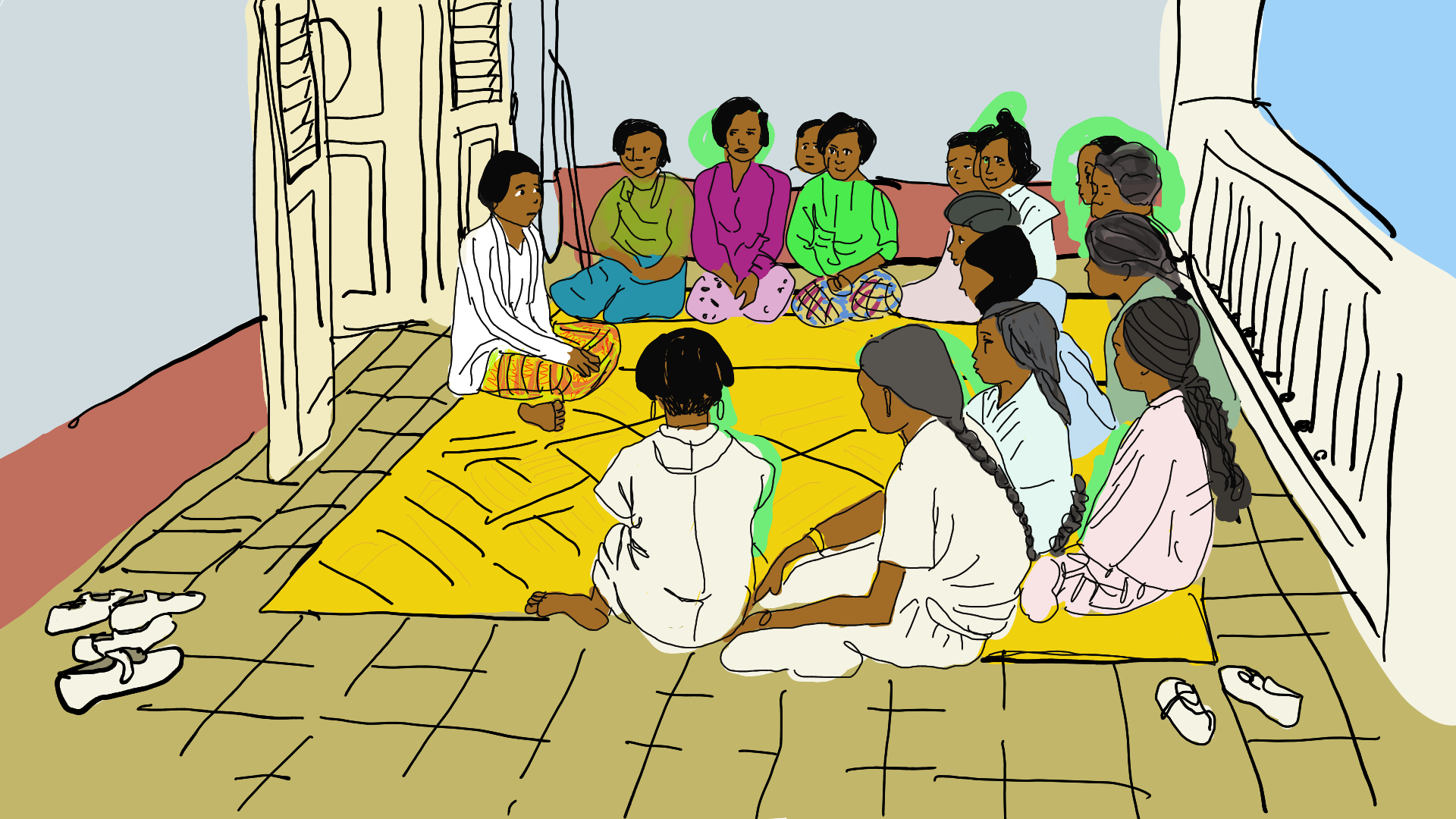
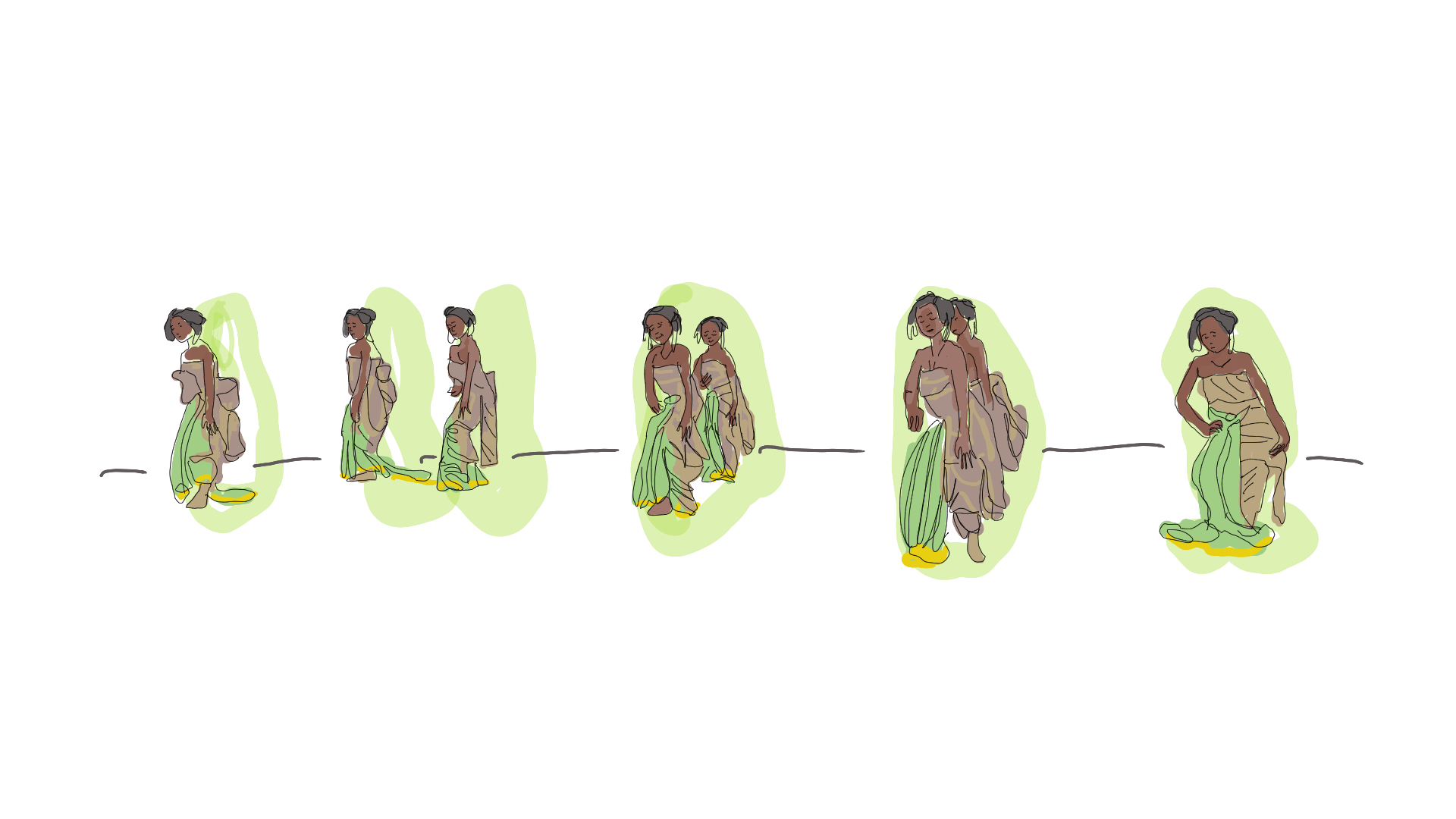
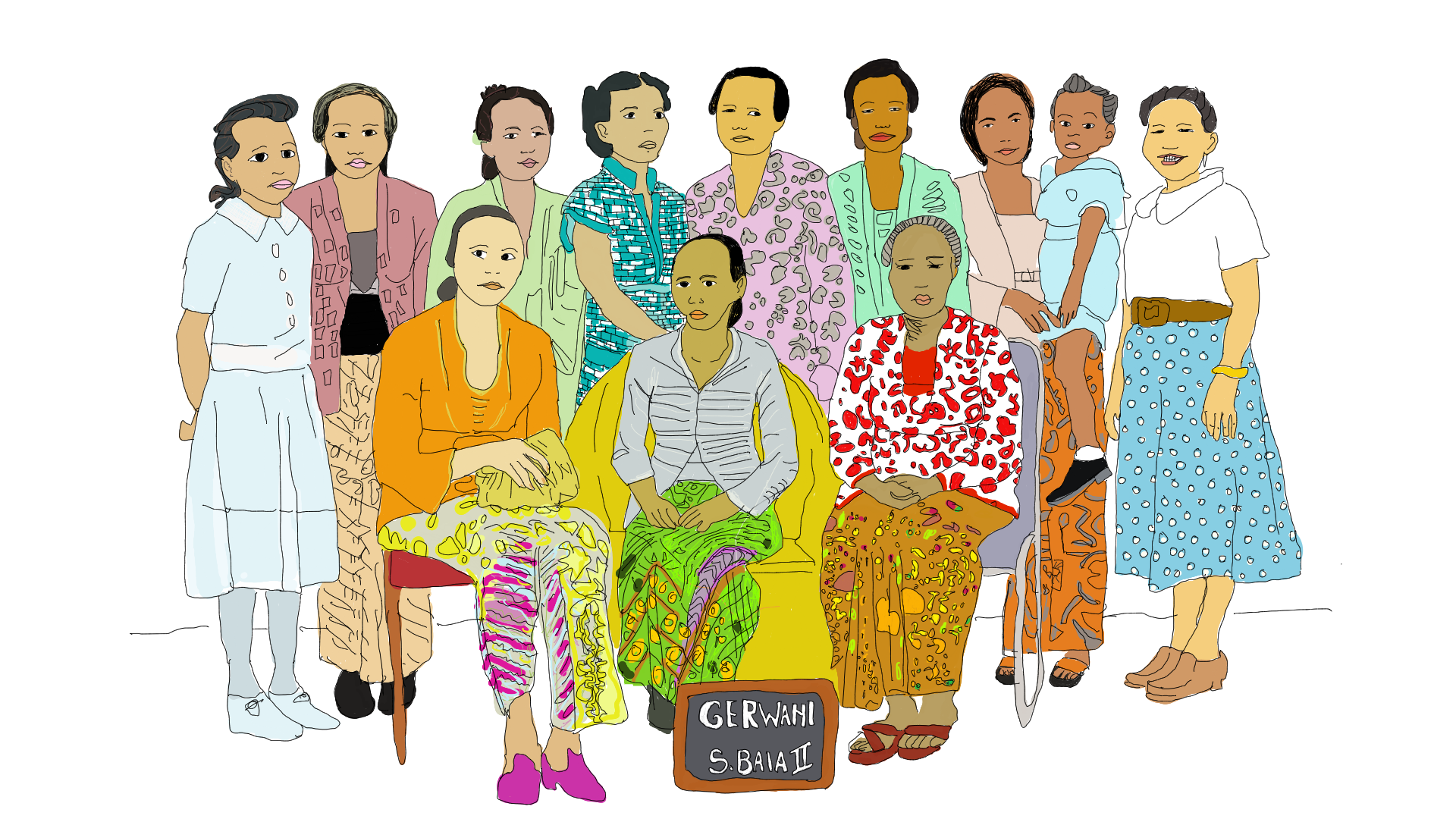


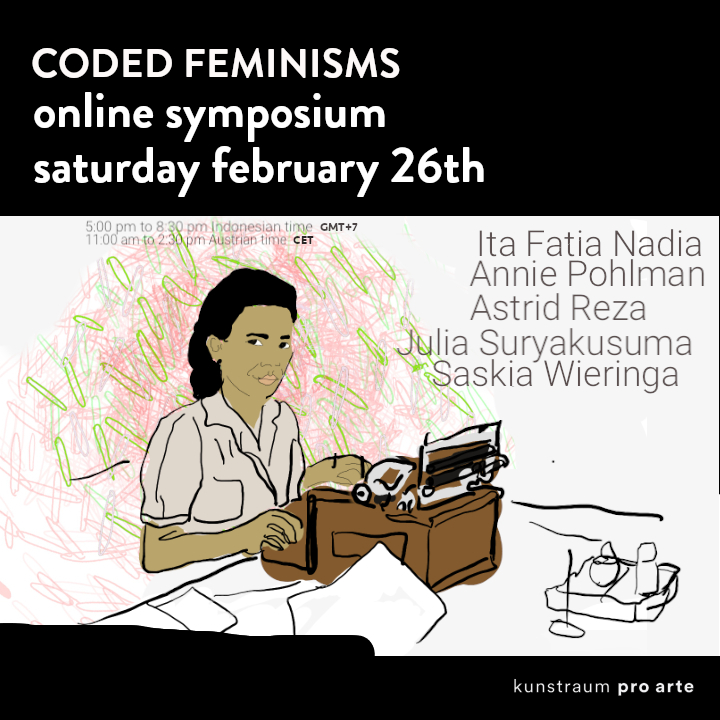

watch here:
https://codedfeminisms.org/21-2/
ENGLISH:
Do you know where the largest feminist movement of the 1960s was originally based? Indonesia! Many European and Northern American feminists believe that their interpretation of liberty and equality was exported to the so-called Global South. The women’s* movement in Indonesia in fact had experienced its widest expansion between the 1920s and the early 1960s. With three million members Gerwani was the strongest organisation of this movement. It presented the largest and most progressive feminist movement in the world of that time. After a |
coup d’Etat that was supported by Western countries this feminist movement and all other critical or leftist networks were silenced. Critical ideas could only get communicated in hidden, translated and coded form. The following 30 years of oppression and propaganda left behind scars and stigmata that affect the public memory of the women’s movement up until today. Still trauma cannot heal, because memories are handled as family secrets. In this context art is a valued platform for voicing critique, initiating transformation and healing from trauma. |
The Online Symposium “Coded Feminisms in Indonesia” is organized in the context of the solo exhibition „Coded Feminisms“ by media artist Stefanie Wuschitz. The solo exhibition shows the results of an artistic research project, that aims to reconstruct the practices and positions of the destroyed feminist movement.
After the exhibition opening the online symposium invites experts on gender equality, democracy and feminist movements in Indonesia to give online lectures. The symposium wants to pay tribute to these authors’ and activists’ significant, famous and outstanding work. The symposium situates the exhibition in a transdisciplinary discourse and opens up a critical debate on the unique approach, practice and insight of activists involved between 1950s and 1965, activists who were part of the Indonesian women’s movement, and in particular Gerwani, that had an outspoken position against imperialism, colonialism, polygamy, fought for gender equality in family, education, politics and at the workplace, created networks to support children and give access to kindergartens and schools. In the Symposium we would like to discuss: How does Gerwani’s legacy impact future generations? What new challenges and which new perspectives emerge in this process?
This arts-based research project was started by Stefanie Wuschitz in 2019 and ended in 2021. Two artist in residence projects in Indonesia 2013 and 2014/15 resulted in an increased interest in Gerwani and the Indonesian women’s movement. In 2019 she applied for and received a grant from the city of Berlin (Digital Program, TU Berlin) to do interviews about Gerwani and create an animated documentary on the topic. With the extremely professional and dedicated assistance and guidance of Nilu Ignatia and Astrid Reza, archive materials, interviews, literature and footage could be collected. To protect the interviewed people’s identity and to acknowledge copyright licensing of the image materials, Stefanie Wuschitz decided to draw an animated documentary. It was generated through a team of artists who contributed texts, voice, music and sounds. The final animated documentary “Coded Feminism in Indonesia” will be screened for the first time at the opening of the exhibition in Austria.
After the exhibition opening the online symposium invites experts on gender equality, democracy and feminist movements in Indonesia to give online lectures. The symposium wants to pay tribute to these authors’ and activists’ significant, famous and outstanding work. The symposium situates the exhibition in a transdisciplinary discourse and opens up a critical debate on the unique approach, practice and insight of activists involved between 1950s and 1965, activists who were part of the Indonesian women’s movement, and in particular Gerwani, that had an outspoken position against imperialism, colonialism, polygamy, fought for gender equality in family, education, politics and at the workplace, created networks to support children and give access to kindergartens and schools. In the Symposium we would like to discuss: How does Gerwani’s legacy impact future generations? What new challenges and which new perspectives emerge in this process?
This arts-based research project was started by Stefanie Wuschitz in 2019 and ended in 2021. Two artist in residence projects in Indonesia 2013 and 2014/15 resulted in an increased interest in Gerwani and the Indonesian women’s movement. In 2019 she applied for and received a grant from the city of Berlin (Digital Program, TU Berlin) to do interviews about Gerwani and create an animated documentary on the topic. With the extremely professional and dedicated assistance and guidance of Nilu Ignatia and Astrid Reza, archive materials, interviews, literature and footage could be collected. To protect the interviewed people’s identity and to acknowledge copyright licensing of the image materials, Stefanie Wuschitz decided to draw an animated documentary. It was generated through a team of artists who contributed texts, voice, music and sounds. The final animated documentary “Coded Feminism in Indonesia” will be screened for the first time at the opening of the exhibition in Austria.
CODED FEMINISMS ︎︎︎
Gemeinschaften zur Selbstbildung und eine Infrastruktur zur gegenseitigen Selbsthilfe. Mit drei Millionen Mitgliedern war Gerwani die stärkste Organisation dieser Bewegung. Gerwani-Vertreter*innen forderten Indonesiens Unabhängigkeit, Souveränität und Blockfreiheit gegenüber den Machtblöcken des Kalten Krieges. Nach einem von westlichen Ländern unterstützten Staatsstreich wurden Gerwani und alle anderen kritischen, feministischen oder linken Netzwerke zum Schweigen gebracht. Kritische Ideen konnten nur noch in versteckter, codierter, übersetzter und verschlüsselter Form kommuniziert werden. Multinationale Konzerne begannen, die indonesischen Märkte und die indonesische Wirtschaft zu dominieren, indem sie Minen ausbeuteten, Öl exportierten, Wasser privatisierten und Land verseuchten.Mit diesem künstlerischen Forschungsprojekt versucht Stefanie Wuschitz, die Praktiken und Positionen der zerstörten feministischen Bewegung zu rekonstruieren. Um vielfältiges Archivmaterial zu nutzen und die Privatsphäre der interviewten Personen zu wahren, wurde das Videoprojekt als animierter Dokumentarfilm umgesetzt. Die Installationen und Zeichnungen in dieser Ausstellung gehen der Bedeutung von Neokolonialismus und Extraktivismus in unserer Gesellschaft nach. Das Video „Rumah Hacker“ und die Installation „Congklak“ untersuchen Commons als Strategie zur gerechten Verteilung begrenzter Ressourcen.Die Ausstellung basiert auf dem gleichnamigen künstlerischen Forschungsprojekt das als Post-Doc Projekt in künstlerischer Forschung an der TU Berlin, finanziert durch das Digital Programm der Berliner Hochschulen, durchgeführt wurde.Eröffnung: Donnerstag, 24. Februar 2022 um 19:30 UhrDauer der Ausstellung: 25. Februar bis 02. April 2022Photo credits: by kunstraum pro arte and Stefanie Wuschitz 2022
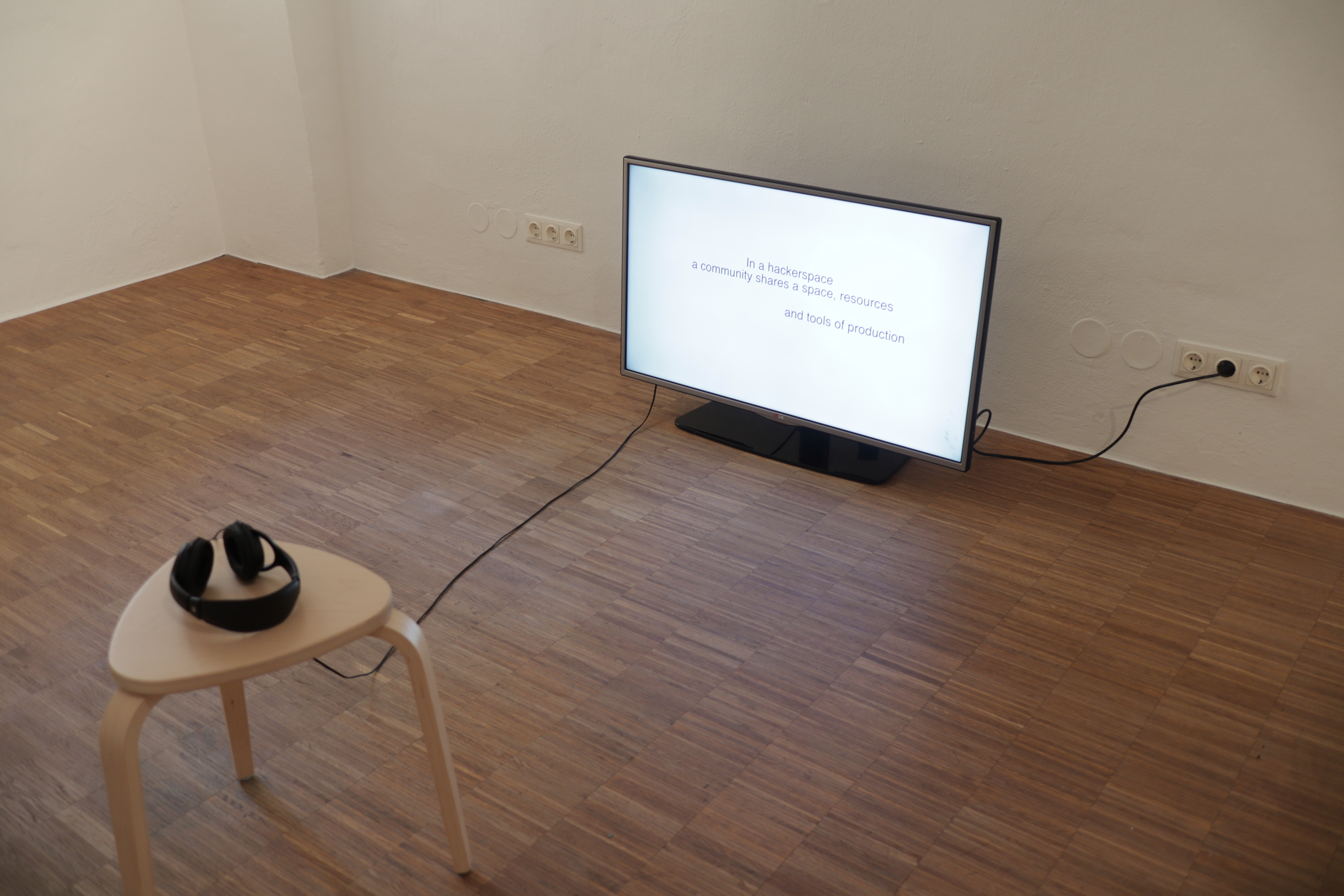
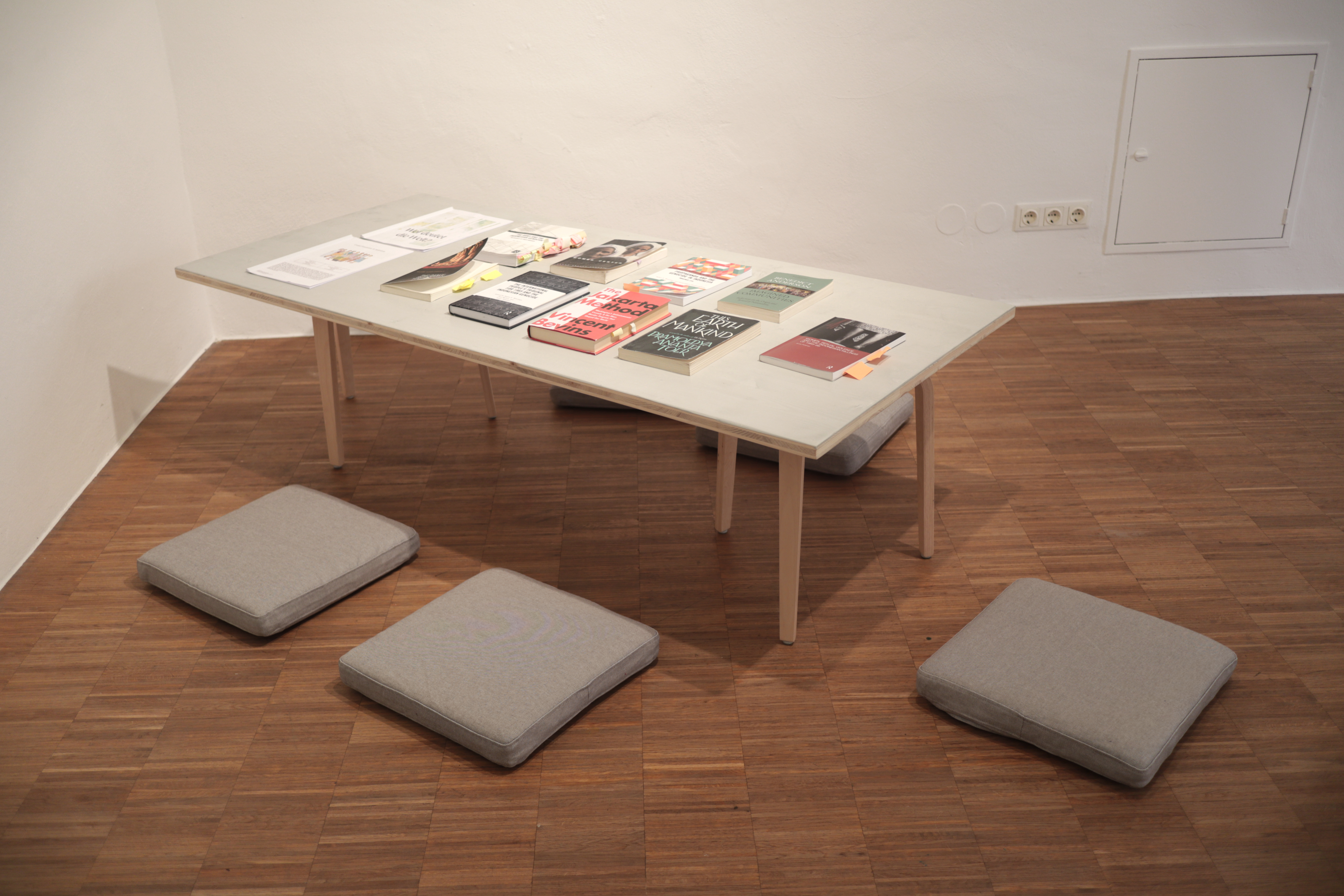

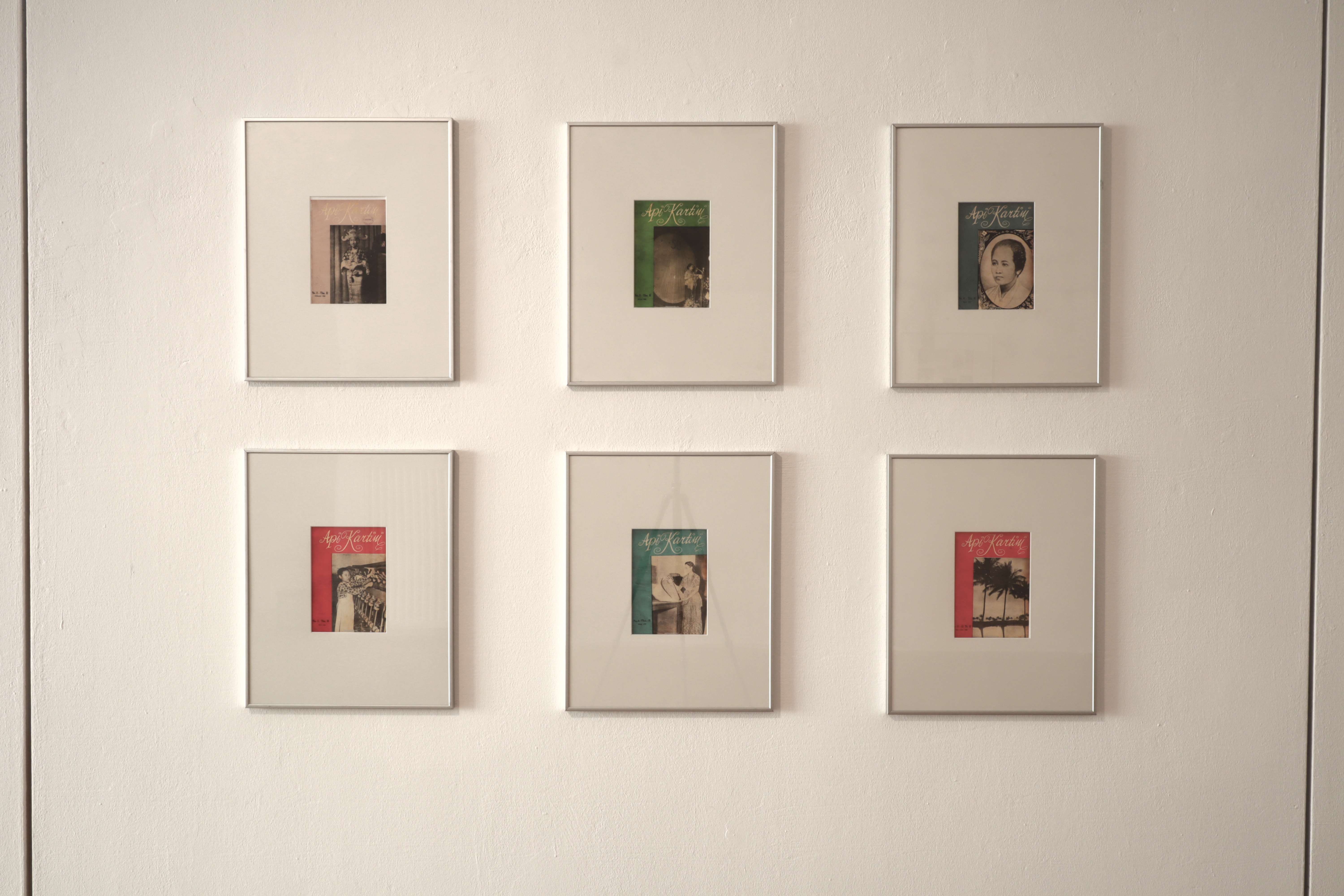
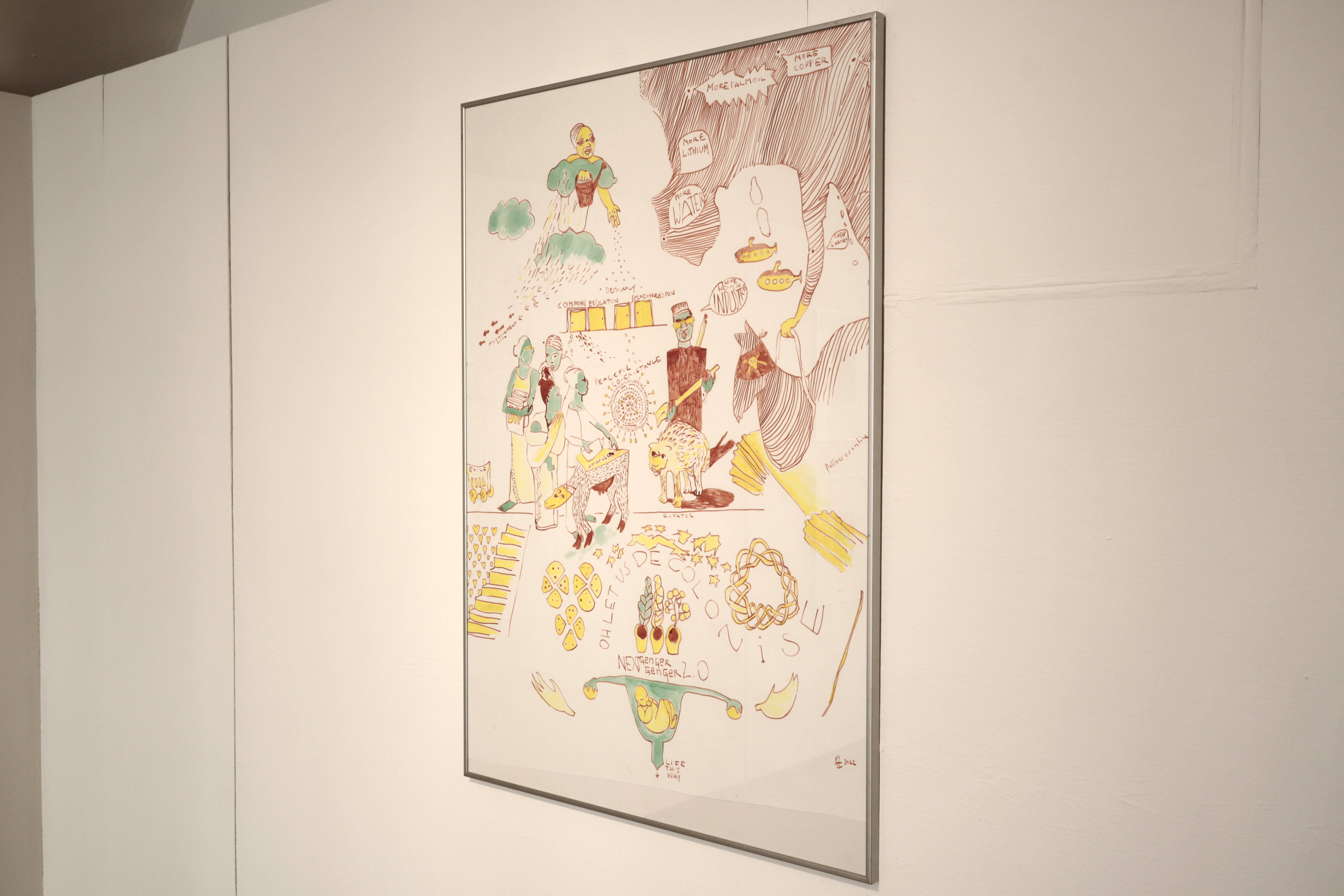
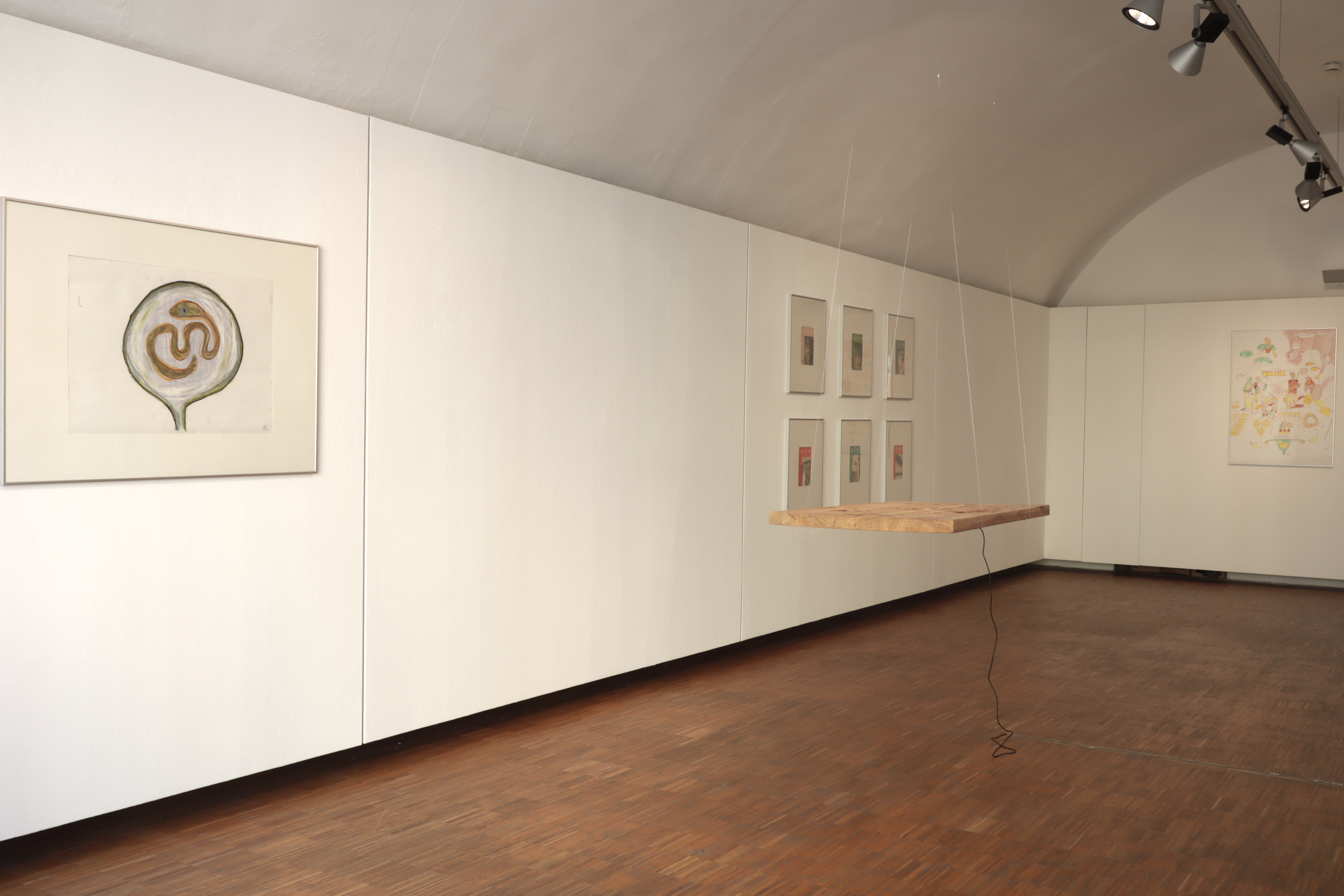
www.codedfeminisms.org
Exhibited at
Group exhibition
A Knot in the Throat: Foraging for a Vanishing Present
Kunsthalle Exnergasse, Vienna
September 9 - October 9, 2021
https://www.wuk.at/en/events/a-knot-in-throat/
Solo exhibition, Kunstraum pro Arte, Salzburg
CODED FEMINISMS IN INDONESIA
http://kunstraumproarte.com/coded-feminisms-in-indonesia/
25. Februar bis 02. April 2022
Solo exhibition Stefanie Wuschitz
>Gute Mi[]ne – böses Spiel<
Galerie3 Klagenfurt 23 Sep – 28 Oct 2023
https://www.galerie3.com/exhibitions/50212/gute-mi-ne-boeses-spiel/works/
Galery 3, Klagenfurt
September - October 2023





